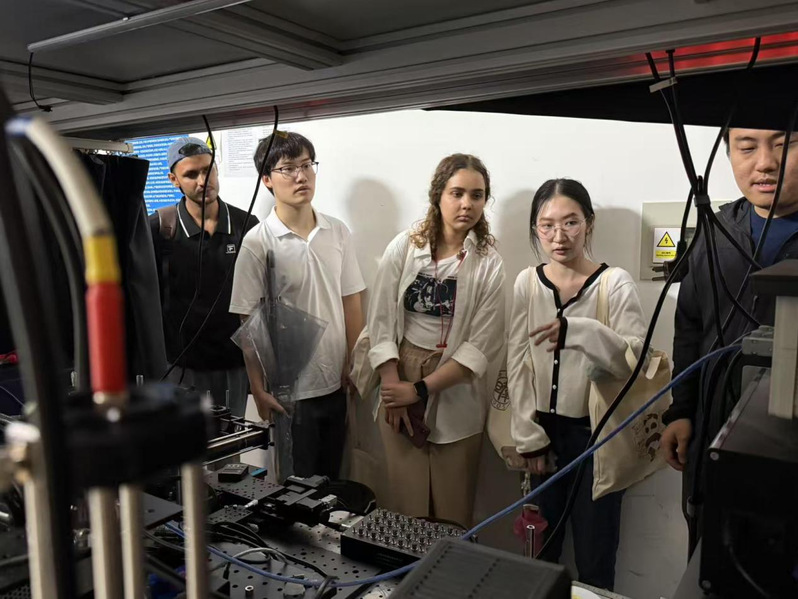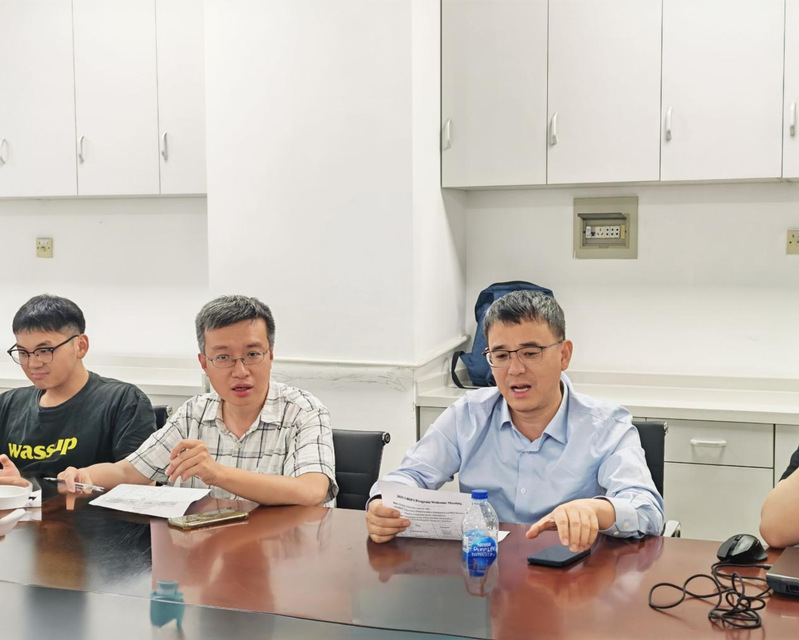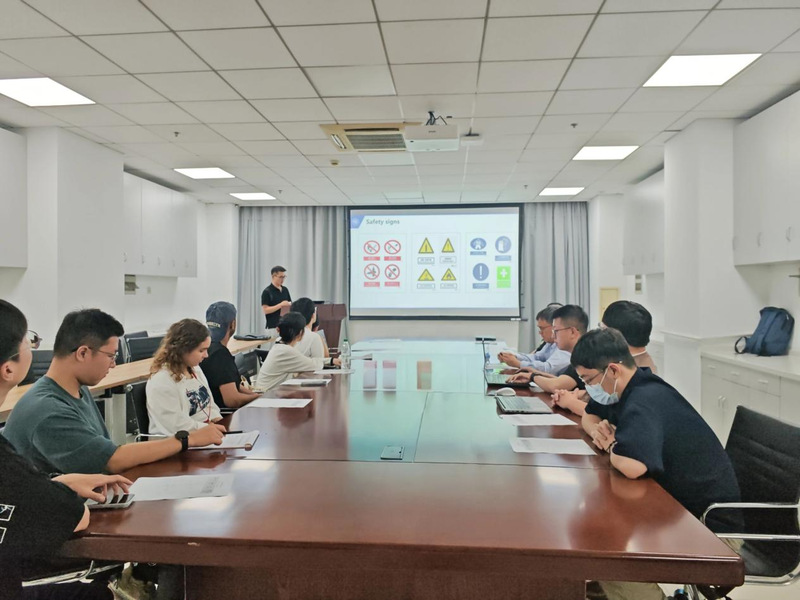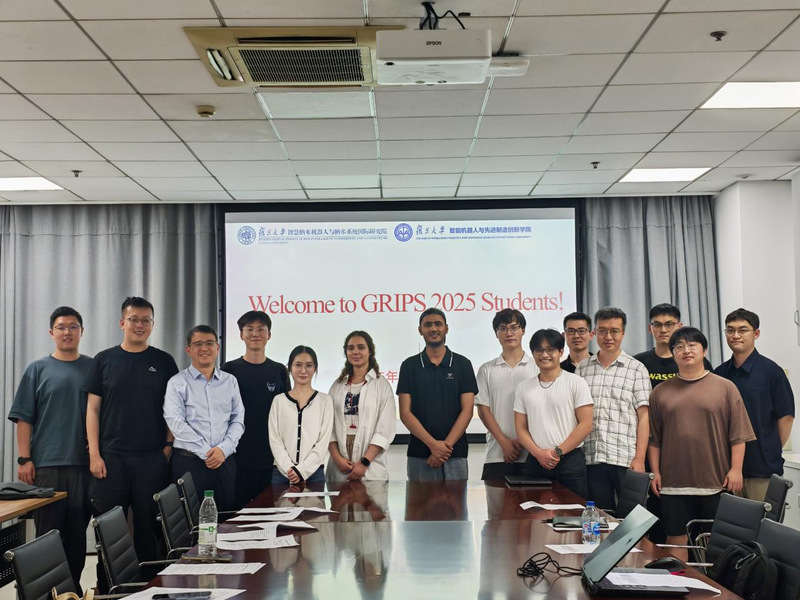2025年6月23日,由浙江大学联合复旦大学、中国科学技术大学和南京大学共同发起的2025年全球青年科学家科研实习项目 (Global Research Internship Program for Young Scientists, GRIPS) 正式启动,来自全球各地的40余名优秀学子齐聚复旦,共同开启了GRIPS项目之旅。其中6位分别来自于印度尼西亚、澳大利亚、俄罗斯联邦、巴基斯坦、和中国的学生将在我院执行院长梅永丰教授及副院长黄高山教授指导下,进行为期数周的科研交流。
当日下午,我院为6名GRIPS学生举办了专题欢迎会。项目导师梅永丰教授和黄高山教授、带教博士团、实验室安全管理员以及GRIPS学生共同出席了会议。会议开始前,带教博士团带领学生一起参观了实验室,实地讲解了实验室的科研方向与设备功能,帮助学生快速熟悉科研环境。会议中,两位院长导师对学生们的到来表示热烈的欢迎,详细阐述了我院科研平台情况,并强调我院对GRIPS项目的重视 ,鼓励学生们充分利用我院科研平台进行深入探索,积极交流、碰撞思想,并承诺提供全力支持。为保障科研高效融入,我院实施“1对1精准带教”机制—6位学生与6名带教博士一一结对。双方通过自我介绍与专题交流迅速建立合作纽带。实验室安全管理员周晨义博士开展全维度安全培训,重点强化科研规范操作与各实验室安全守则。



会议现场交流氛围热烈,学生们纷纷表达了对未来研究合作的期待,并感谢复旦大学提供的宝贵机会。最后,全体成员合影留念,定格这一象征国际科研合作启航的难忘时刻。

GRIPS项目旨在通过实验室实践与深度学术交流,培养青年科研人才的国际视野与创新能力。此次欢迎会不仅为来自世界各地的学子提供了融入复旦科研团队的契机,促进了跨文化理解,也为后续在材料、物理、微纳制造等领域的跨学科合作奠定了坚实基础。
Our Institute Hosted a Welcome Meeting for Students of the 2025 Global Research Internship Program for Young Scientists
On June 23, the 2025 Global Research Internship Program for Young Scientists (GRIPS), jointly launched by Zhejiang University, Fudan University, University of Science and Technology of China, and Nanjing University, officially commenced. Over 40 outstanding students from around the world gathered at Fudan University to embark on their GRIPS journey. Among them, six students from Indonesia, Australia, Russian Federation, Pakistan, and China will engage in several weeks of scientific exchange under the guidance of Professor Yongfeng Mei, Executive Dean of our institute, and Professor GaoShan Huang, Deputy Dean.
That afternoon, our institute hosted a special welcome session for the six GRIPS students. The Program supervisors Professors Yongfeng Mei and Gaoshan Huang, the doctoral mentoring team, laboratory safety administrator, and the GRIPS students attended the event. Prior to the meeting, the doctoral mentors led the students on a laboratory tour, providing on-site explanations of research focuses and equipment functionalities to help them quickly acclimate to the research environment.
During the session, the two deans extended a warm welcome to the students, elaborated on the institute's research platforms, and emphasized the institute's strong commitment to the GRIPS program. They encouraged the students to fully leverage the institute's resources for in-depth exploration, active discussion, and intellectual exchange, pledging comprehensive support. To ensure seamless research integration, the institute introduced an innovative one-on-one mentoring mechanism, pairing each of the six students with a dedicated doctoral mentor. Through self-introductions and thematic discussions, the students and mentors swiftly established collaborative connections. Dr. Zhou Chenyi, the laboratory safety administrator, conducted comprehensive safety training, highlighting standardized research protocols and laboratory safety regulations.
The meeting featured vibrant discussions, with students expressing enthusiasm for future research collaborations and gratitude to Fudan University for this invaluable opportunity. The event concluded with a group photo, capturing this memorable moment that marked the beginning of international scientific collaboration.
The GRIPS program aims to cultivate global perspectives and innovative capabilities in young researchers through hands-on laboratory experience and profound academic exchange. This welcome session not only provided students from diverse backgrounds an opportunity to integrate into Fudan's research community, fostering cross-cultural understanding, but also laid a solid foundation for future interdisciplinary collaboration in materials science, physics, micro/nano-manufacturing, and related fields.
撰稿:程绍平
校稿:杨帆
审核:黄高山
